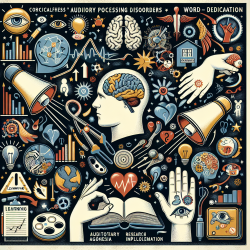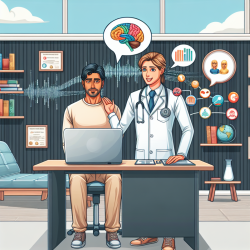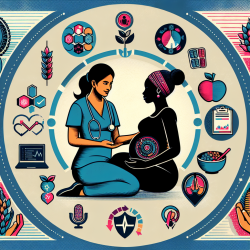As practitioners in the field of speech and language pathology, it is imperative that we continuously seek out and incorporate research findings into our practice to enhance the therapeutic outcomes for our clients. A deeper understanding of auditory processing disorders can significantly impact our approach to therapy, particularly when we consider the nuances of conditions such as cortical deafness, auditory agnosia, and word-deafness. The research article titled "Cortical Deafness, Auditory Agnosia, and Word-Deafness: How Distinct are They?" by Isabelle Rapin provides valuable insights into these conditions, offering a foundation for more targeted and effective therapeutic interventions.
Word-deafness, or verbal auditory agnosia, represents one of the most profound auditory processing disorders, where individuals are unable to comprehend speech despite having intact hearing abilities. This condition, devastating in its impact, requires therapists to adopt a unique set of strategies to facilitate communication and language development. The complexity of auditory processing disorders highlighted in Rapin's research underscores the necessity for practitioners to distinguish between these conditions to apply the most appropriate therapeutic approaches.
Key Insights from the Research
- The differentiation between cortical deafness, auditory agnosia, and word-deafness is crucial for developing effective treatment plans. Each condition affects auditory processing differently, influencing the approach therapists should take.
- Word-deaf children often exhibit significant challenges in language acquisition and may require alternative communication methods, emphasizing the importance of early and accurate diagnosis.
- Therapeutic approaches should be highly individualized, taking into account the specific auditory processing deficits and the overall cognitive and linguistic capabilities of the client.
- Engagement with visual communication strategies, such as sign language or picture-based communication, can be particularly beneficial for individuals with severe word-deafness.
Implications for Therapy Practice
The insights from this research article not only deepen our understanding of auditory processing disorders but also call for a shift in how we approach therapy for individuals affected by these conditions. Here are some ways practitioners can implement the outcomes of this research into their therapy practices:
- Enhanced Assessment Practices: Develop comprehensive assessment protocols that differentiate between various auditory processing disorders. This may involve detailed behavioral evaluations, electrophysiological recordings, and collaboration with audiologists.
- Individualized Therapy Plans: Tailor therapy plans to address the specific type of auditory processing disorder. For instance, clients with word-deafness may benefit more from visual and tactile communication strategies than traditional auditory-based approaches.
- Use of Technology: Incorporate technology, such as tablet-based apps or AAC devices, that support visual learning and communication to complement traditional therapy methods.
- Parent and Caregiver Education: Educate parents and caregivers on the nature of the auditory processing disorder and how they can support language development and communication at home.
- Professional Development: Engage in continuous professional development to stay updated on the latest research and therapeutic techniques relevant to auditory processing disorders.
Encouraging further research and ongoing education in the field of auditory processing disorders is essential for the evolution of therapy practices. Practitioners are urged to explore beyond the findings of this article and to contribute to the growing body of knowledge on these complex conditions.
For those interested in delving deeper into the distinctions between cortical deafness, auditory agnosia, and word-deafness, and to explore the implications of these conditions on therapy practices, Cortical Deafness, Auditory Agnosia, and Word-Deafness: How Distinct are They? is an invaluable resource. By integrating the insights from this research into our practice, we can enhance the support provided to individuals with auditory processing disorders, facilitating more effective communication and improved quality of life.










